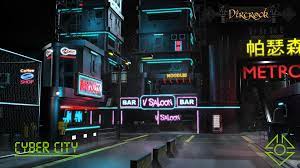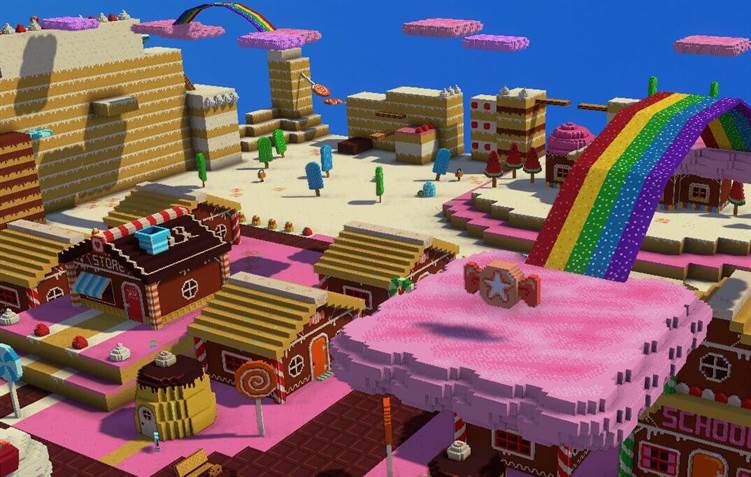Blockchain Games: Altcoins to Watch
2023’s Hottest Blockchain Games: Unlock the Future of Gaming and Investments. Play-to-Earn Altcoins: The Future of Gaming & Investments
Axie Infinity Loses $600 Million
Biggest hacker heists to date against crypto gaming where the hackers took off with $600 million. The victim is crypto gaming; Axie Infinity.
Play To Earn Games Or Regular Day Jobs

Significant reasons behind Play to Earn games popularity is its model where you earn real money while playing games. Sounds cool, isn’t it?
GALA Games And The P2E Gaming Sector
In February, GALA Games experienced remarkable growth, with its value surging by 117%, defying criticism from mainstream sources. Despite challenges in the cryptocurrency and NFT markets, the play-to-earn (P2E) gaming sector demonstrated its resilience, with certain P2E games maintaining their economic systems amid the crypto market downturn.
GALA Games, a prominent player in the P2E sector, has been a standout success. GALA enables players to have control over P2E games, gameplay mechanics, and in-game assets through blockchain technology. According to data from Cointelegraph markets pro and Tradingview, GALA’s price increased by 117% from its low of $0.177 at the beginning of the month, reaching a peak of $0.384 on February 7th.
Several factors contributed to this substantial increase and recovery. The P2E gaming sector is experiencing steady growth, with numerous new projects being launched, including GALA’s support for upcoming titles like Spidertanks and Legends Reborn. The company’s expansion into new ventures and partnerships also boosted investor confidence. Gala Games partnered with the 888innercircle community on Twitter, which comprises over 205,000 members interested in NFTs and digital collectibles. Additionally, GALA teamed up with Betwixt, a mental health gaming application, with Gala committing $1 million in funding.
GALA’s dynamic ecosystem, characterized by innovative user approaches, played a significant role in attracting more users. The introduction of new avenues for earning yield through gameplay and running Gala nodes contributed to the steady growth in user numbers. As of February 7th, the number of GALA users had tripled to reach 122,230, a substantial increase compared to the count on November 7th. This impressive performance underscores the resilience and potential of both GALA Games and the broader P2E gaming sector.
Take-Two On Play to Earn Future
Take-Two CEO Strauss Zelnick once again shared his thoughts on NFTs and play-to-earn games. Take-Two On Play to Earn Future!
Square Enix: Blockchain Gaming Is The Future
Discover Square Enix’s exciting plans for blockchain gaming and NFT projects, including an anniversary art collection and new NFT game.
India Plans To Ban Crypto
After China and Korea crusades against the crypto industry, India also plans to follow suit. At the end of 2021, India announced a bill
Blockchain Tech, Games and P2E
Blockchain Technology, Video Games equals Earning Opportunities for every gamer! Play To Earn (P2E) Opportunities are all over in 2022.
DappRadar Report January ’23
According to DappRadar on January 23, video gaming activity accounts for nearly half of all blockchain activity; read on for more interesting facts.
Jam City in NFT Games
Jam City, a mobile game developer, has entered into the blockchain domain with its new title Champions: Ascension.
Ubisoft Partners With Aleph.im
Ubisoft pushes further with its plans with NFTs and blockchain by partnering up with Aleph.im. The partnership will bring playable NFTs
South Korea’s Removal Play-to-Earn

In a recent move by the authorities in South Korea, Apple and Google are asked to remove play-to-earn games from their respective stores
Zynga And Forte – Blockchain
In a bid to create blockchain-based games, Zynga has entered into a strategic partnership with software maker Forte
Nexon America makes Big Move Towards Crypto
Nexon America, a gaming company and subsidiary of South Korean gaming giant Nexon, announced that it has started accepting cryptocurrencies.
Voodoo Blockchain Games Is A GO
French hyper-casual game company Voodoo announces that it plans to make massive investments in blockchain-based mobile games.
China Warns Citizens Against Blockchain
China’s offensive against crypto-related things continues and now it has warned its citizens via state television.
Games Accelerate Growth Crypto’s
Play-to-earn games have propelled the popularity of crypto’s in a huge way and the reason behind it is easy to understand.
Gala Games & C2 Ventures
Gala Games has made tremendous efforts and progress when it comes to blockchain technology and gaming. C2 Ventures Launch $100 Fund w/ Gala
Yat Siu’s Vision of the Blockchain-Powered Metaverse
Yat Siu, the founder of Animoca Brands, a company with a substantial investment portfolio in the blockchain industry, envisions a metaverse that leverages blockchain technology to establish digital ownership within Web3 gaming. In contrast to interpretations offered by Meta (formerly Facebook) and Apple, Siu’s metaverse emphasizes the importance of digital property rights over immersive virtual experiences.
Siu’s perspective centers on the concept of digital ownership as a catalyst for transformative growth in digital economies. He posits that a self-sustaining digital economy within the metaverse can only be achieved by introducing the notion of digital ownership, an aspect that goes beyond avatars or virtual reality headsets.
In Siu’s vision, the metaverse should grant individuals intellectual property rights over their data, much like the rights to physical property, life, and liberty in the real world. He critiques the current digital landscape for relinquishing these rights to platforms that hold extensive control over user data.
Within the metaverse, data holds significant power, driving the structures that underpin the digital world’s innovations and advancements. Siu emphasizes that Web3 technology, particularly the concept of non-fungible tokens (NFTs) and their transactions, reshapes the dynamics of ownership and payment. Unlike Web2 platforms, where compensation mechanisms differ, the metaverse empowers creators and asset owners, enabling them to reap substantial benefits from multi-billion-dollar transactions.
Siu highlights the potential of blockchain technology, which tracks transactions, ownership, and volumes meticulously. He underscores its utility in providing an organized framework that extends even to regions where traditional banking services are lacking. Decentralized autonomous organizations (DAOs) also play a role, offering a novel governance structure that could potentially outperform conventional corporate models.
The central theme in Siu’s metaverse concept is true ownership. He likens this to real-world ownership of assets, wherein legal systems, courts, and governance structures secure property rights. Siu contends that digital ownership, facilitated by blockchain, is equally if not more secure than real-world ownership, offering individuals greater control over their digital assets.
Despite concerns about the speculative nature of token prices in Web3, the idea of ownership resonates universally. Siu underscores that decentralization is key to realizing this ownership, much like the mechanisms that safeguard real-world assets. In conclusion, Yat Siu’s vision for the metaverse intertwines blockchain technology, digital ownership, and decentralization to foster a revolutionary digital economy.
The Play-to-Earn Gaming Revolution: Exploring the World of Blockchain Gaming and NFTs
Unlocking the Play-to-Earn Gaming Revolution: Exploring Blockchain Gaming and NFTs. Discover the game-changer in the gaming industry: Play-to-Earn (P2E) games. Immerse yourself in blockchain technology and Non-Fungible Tokens (NFTs) to own in-game assets and trade them freely. Earn real money while gaming, drawing players and investors into this growing field. Maximize your earnings with strategic gameplay and delve into the futuristic metaverse. Uncover the power of NFTs, offering true ownership and new monetization models. Join the dynamic blockchain gaming community through our Discord server and YouTube game channel. Embark on an adventure in the Play-to-Earn universe and seize endless possibilities and exciting rewards.
The State of Blockchain Gaming 2023
The global blockchain gaming market is projected to reach USD 65.7 billion by 2027, growing at a compound annual growth rate (CAGR) of 70.3% from its estimated value of USD 4.6 billion in 2022. Blockchain gaming, the convergence of blockchain technology and the gaming industry, has experienced rapid growth and shows immense potential for the future. This emerging field has captured the attention of both gamers and developers alike, as it offers opportunities to transform the gaming experience, introduce novel revenue streams, and enhance security measures. In this article, we delve into the current state of blockchain gaming and explore forecasts for its industry in 2023.
